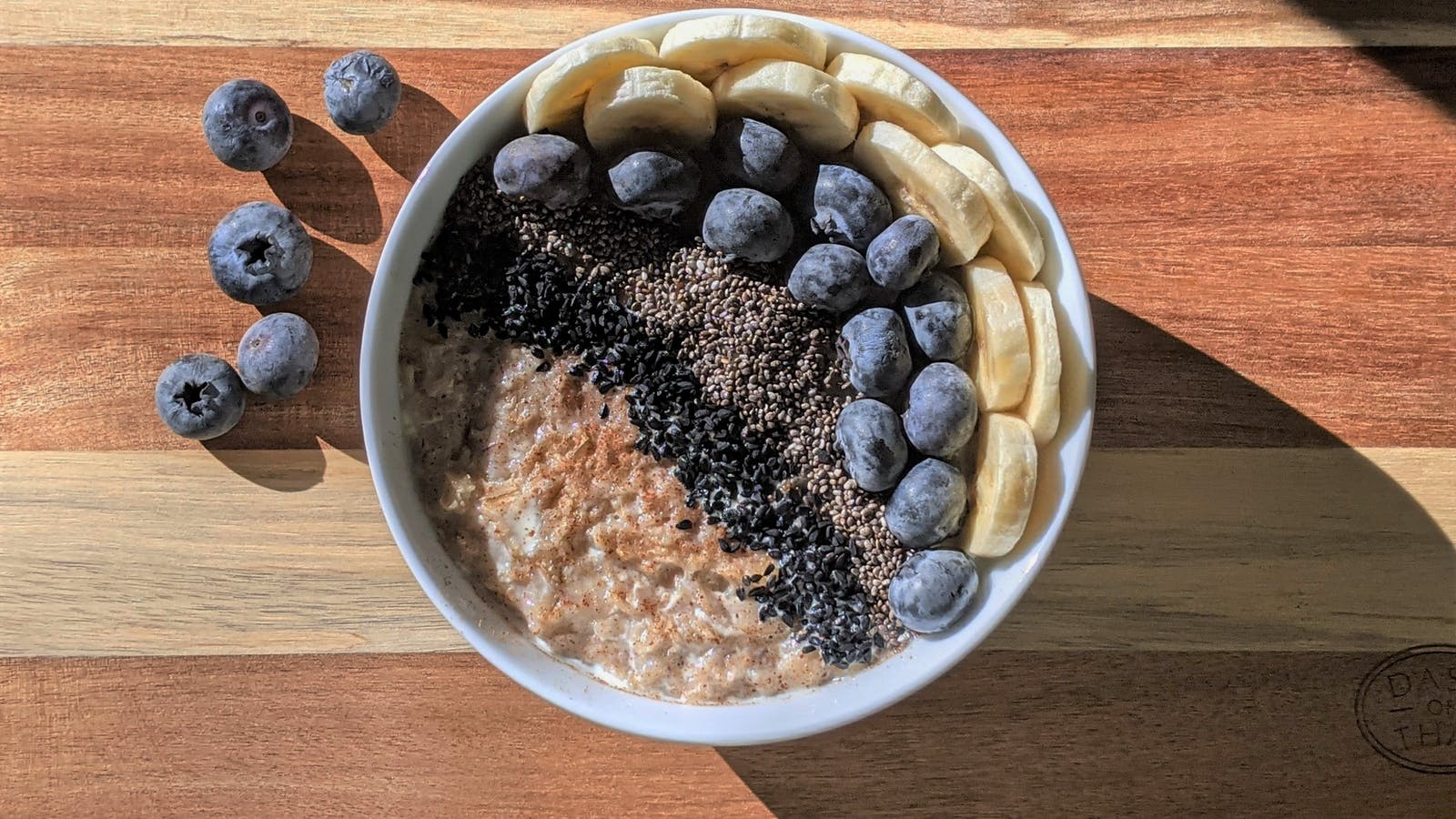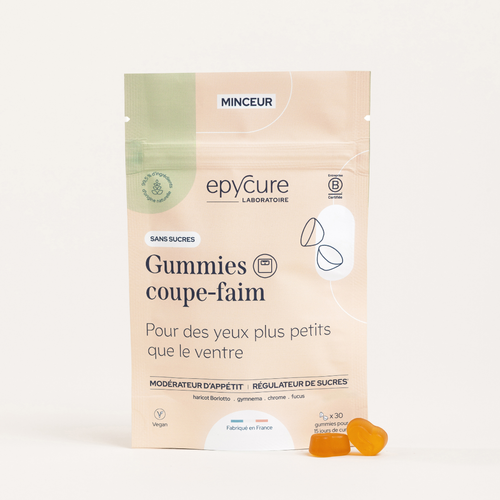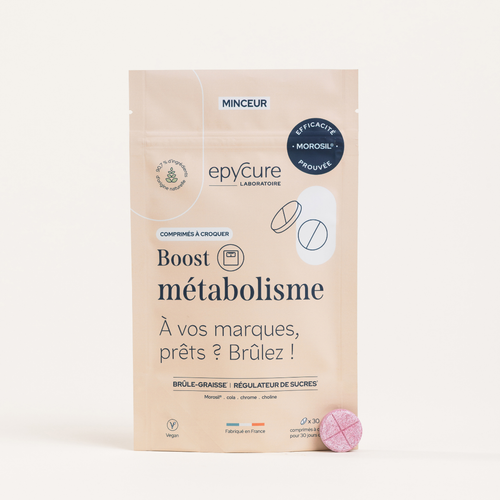Losing a little weight often involves rebalancing your diet and reducing the calories in your diet. If it's not gradual, it's not easy to stick to it... The body goes into survival mode and does everything it can to survive, particularly by increasing hunger. Snacking, sugar cravings, and other food binges then await us. In this article, we explain how the hunger mechanism works and give you all our advice to help you stay in shape and reduce your appetite effectively and sustainably.
WHAT TO REMEMBER
- Food intake is regulated by orexigenic factors such as ghrelin, which stimulate appetite, or anorexigenic factors such as leptin, GLP-1 or PYY, which inhibit hunger.
- Physiological hunger is hunger that makes you feel prickly, dizzy, moody, or otherwise depressed. It is controlled by the brain.
- Conversely, emotional hunger is characterized by an urge, an urgent need to eat, without any particular physical sign of hunger. It is a means of comfort that helps us manage our strong emotions.
- Although hunger and satiety are partly regulated by the brain, our relationship with food , eating conditions , sleep , emotions , etc., influence the sensation of hunger and appetite.
- Mindful eating , choosing protein-rich , low-calorie foods, drinking enough water, and including foods that "fill up" in the stomach are all tips that can help reduce appetite.
- Obviously, there are also mistakes to avoid, such as no longer treating yourself at all or even removing certain categories of food from your diet.
What is hunger?
1. The mechanisms of hunger
Eating is often a matter of hunger, nausea, or greed. Unlike other essential functions such as breathing, eating is a one-time activity that we feel we consciously control . However, hunger is a physiological need that results in a feeling of gastric emptiness and hollowness. It initiates a meal and is most often combined with appetite. Unlike hunger, appetite is not a physiological need; it corresponds to the desire to eat a liked food. Food intake consists of three phases:
- Pre-ingestive phase : characterized by the feeling of hunger, it results in the search for food, the preparation and initiation of the meal.
- Prandial phase : corresponds to the period of food intake and the progressive process of satiety (reduction in the volume and number of bites).
- Postprandial phase : characterized by satiety, a state that marks the disappearance of the desire to eat and a fully satisfied hunger. It corresponds to a phase of “non-search” for food. Its duration depends on the quality and quantity of the previous meal.
This intake is partly regulated by a complex hormonal and peptide system . Depending on the presence or absence of food in the stomach, the brain will release orexigenic factors, which stimulate appetite , or anorexigenic factors, which inhibit hunger . It is thanks to these mediators that the digestive system and the brain communicate.
- Ghrelin is the main hormone that triggers hunger. Secreted by specific cells in the stomach, it allows us to feel hungry shortly before meals and triggers food intake. As the stomach fills, ghrelin production decreases .
- If food intake decreases and the meal stops, it is under the effect of a multitude of hormones such as leptin , polypeptide YY, glucagon -like peptide-1 (GLP-1), etc., stimulated in particular by the modification of circulating levels of nutrients.
Note that sensory signals like the taste, appearance, texture of the food can also condition food intake . Beware of sweet and fatty foods, creamy and smooth textures often very high in calories which can encourage overconsumption of food.
2. Differentiate between physiological hunger and emotional hunger
Physiological hunger is hunger that makes you feel sick , dizzy, moody, or a bit down. It develops slowly and is regulated by the hypothalamus in the brain, which receives information about the state of energy reserves and helps trigger hunger little by little. If you don't eat, the symptoms of hunger increase because your body needs nutrients at that moment.
But sometimes we eat when we are not hungry, only out of desire, this is called emotional hunger or psychological hunger . It refers to eating in response to an emotional feeling rather than hunger. It is characterized by an impulse , an urgent need to eat a specific food, without any particular physical sign of hunger. In this specific case, we seek comfort in food: eating provides a certain pleasure and helps us manage our emotions , such as stress, anger or sadness.
An effective means of short-term comfort, emotional hunger often leads to feelings of guilt. We must accept these food cravings, which serve as a means of compensation during emotionally charged moments. They have their place in a healthy relationship with food . After a dietary lapse, the body is able to naturally rebalance appetite throughout the rest of the day. So be kind to yourself ;)
3. Aggravating factors of hunger
Although hunger and satiety are partly regulated by the brain, many external factors influence hunger and appetite.
- The way we eat : when we're in a hurry and eating on the spur of the moment, on the corner of a desk, or while walking, we eat without paying attention and often don't realize that we're full.
- Meal conditions : eating alone or with others plays an important role in food intake, which tends to increase considerably when we eat alone, in front of screens.
- Sleep : People who sleep less tend to have a greater appetite. When sleep is disrupted, ghrelin is produced in excess, causing us to eat more, while leptin, the hormone that regulates satiety, decreases significantly.
- Emotions : In cases of intense stress, many people compensate by eating more, under the influence of emotional hunger. Eating remains an “easy” source of comfort since it helps secrete serotonin, the happiness hormone capable of managing stress.
- Dietary restriction : Embarking on restrictive, low-calorie diets is often counterproductive. The body goes into survival mode and does everything it can to survive. Hunger increases, the production of satiety hormones decreases, and metabolism slows.
- Certain medications : Regular use of certain medications can have an orexigenic effect and cause a permanent feeling of hunger.
How to naturally cut hunger?
Here are our 5 tips for increasing your satiety naturally:
1. Eat mindfully and take the time to chew
Lack of attention is thought to be responsible for overeating. This is why it is more than recommended to eat mindfully, that is, to be more attentive to your feelings of hunger and satiety , to take your time by eating in peace and at regular times. This allows you to naturally lower the number of calories and develop a healthier relationship with food . Furthermore, it is essential to eat slowly, taking the time to chew each bite . This facilitates the secretion of leptin, the satiety hormone that helps regulate fat reserves and appetite. When leptin levels are low, cravings during the day are recurrent and the body tends to store fat more easily. So move away from all distractions, chew each bite thoroughly and pay attention to the flavors that emerge.
2. Focus on foods rich in protein and low in calories
A protein diet guarantees effective and lasting weight loss . Whether plant-based or animal-based, proteins have the advantage of being low in calories and satiating . In addition, they reduce fat mass in favor of muscle mass . Legumes (lentils, chickpeas, peas, etc.) are rich in complex carbohydrates and plant-based proteins and provide a feeling of satiety very quickly to the body. Animal proteins are also very interesting for their appetite suppressant effect. Fish, white meats and egg whites are particularly rich in them. Cottage cheese , also low in calories, has a high satiating power and is therefore highly recommended for satisfying small cravings. Proteins involve a long digestion process which allows the body to be satiated for longer .
3. Include foods that “swell” in the stomach into your diet
To regulate your hunger naturally, you can opt for low-calorie appetite suppressant foods that expand once in the stomach . These foods include foods rich in soluble fiber, which affect the volume of food in the stomach and thus contribute to reducing appetite.
Konjac is an Asian plant rich in fiber and glucomannan , a substance capable of absorbing up to a hundred times its volume in liquid, which is responsible for its appetite suppressant effect. It can be consumed in the form of pastes, vermicelli or gums.
Chia seeds , rich in protein and fiber, also act as a natural appetite suppressant. The fibers swell upon contact with water and transform into a satiating gel with a mucilaginous texture. The proteins prolong the feeling of satiety. Very practical to consume, you can add them to yogurt, cereal, salad, etc.
Finally, you can also opt for agar -agar , a natural gelling agent, rich in fiber, extracted from algae. You can consume it in a herbal tea or infusion thirty minutes before the main meals.
4. Drink enough water
Sufficient hydration can have an appetite suppressant effect since it activates the receptors present on the stomach wall which will send a satiety signal to the brain . This appetite suppressant effect is not long-lasting, so it is advisable to drink throughout the day , around 1.5 to 2 liters to indirectly promote weight loss. You can also drink several cups of green tea during the day, preferably organic, to stay hydrated and to benefit from its antioxidant and fat-burning effect.
5. Take your appetite suppressant gummies
To combat cravings and snacking, you can opt for our Natural Appetite Suppressant Gummies , apple-pineapple flavored chewing gums, which help reduce appetite while limiting snacking urges. On the one hand, this food supplement increases the feeling of satiety during meals thanks to BeanBlock® *, a patented bean extract, and thus helps control excessive food intake . The gummies also limit cravings and snacking outside of meals thanks to chromium and gymnema, which are two ingredients known to cut sugar cravings . Finally, they help with weight control thanks to fucus, an iodine-rich algae that boosts fat metabolism and energy expenditure. To follow the treatment, nothing could be simpler, just take 2 gummies per day, 15 to 30 minutes before the most important meal of the day.
*Beanblock® is a registered trademark of INDENA SPA Italy.
Furthermore, between meals, it's best to avoid giving in to cravings and excessive snacking . However, if you're hungry, there's no need to deprive yourself. Allow yourself a snack by packing nuts (almonds, walnuts, etc.), dried fruit, Greek yogurt, tea, etc.
It's often difficult to know what's right and wrong when losing weight . To avoid any mistakes that could slow down your weight loss and harm your health, we invite you to read our article Weight Loss: 3 Mistakes to Avoid!







